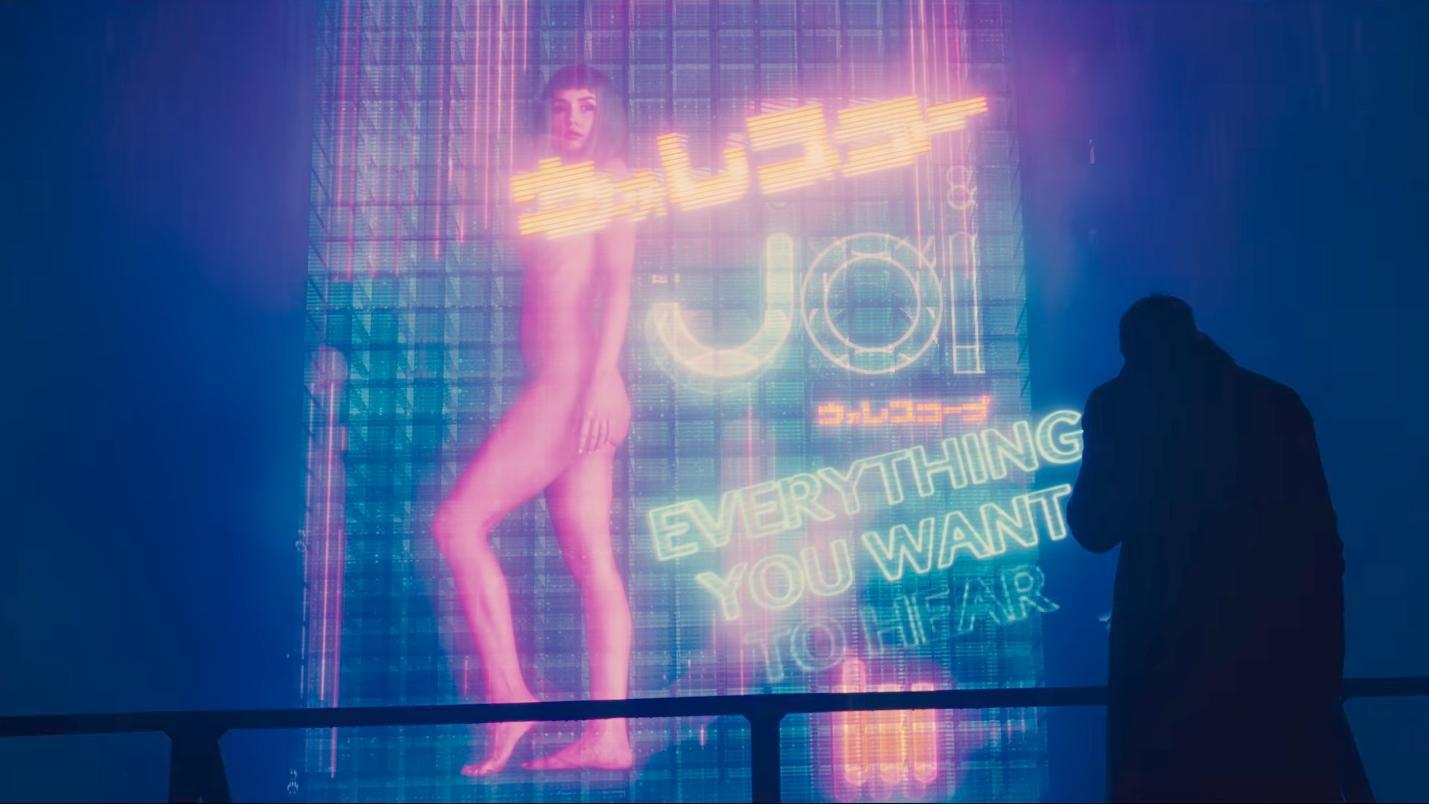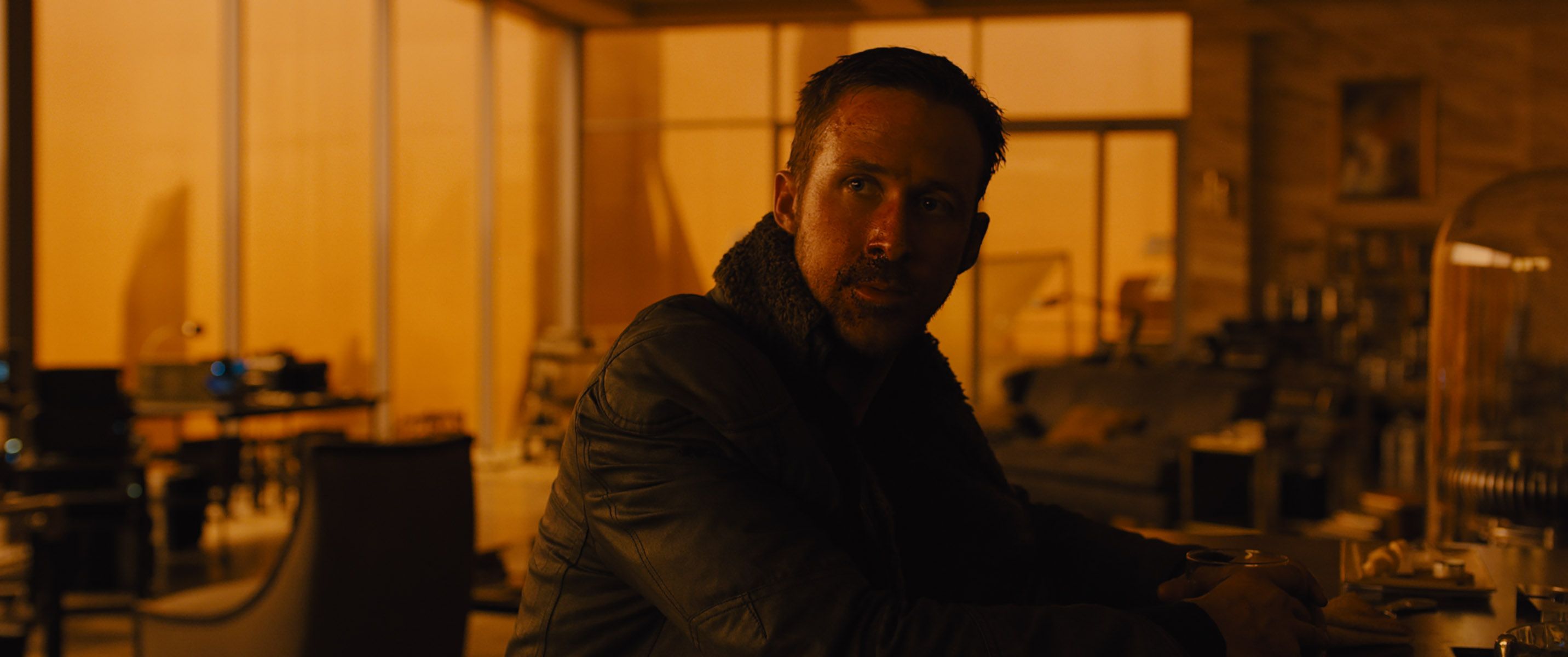Blade Runner is the thinking man's Star Wars. I'm not claiming that Star Wars isn't thought-provoking, nor that it lacks depth. Blade Runner draws heavy from theology, specifically Christianity, and its references are not subtle in the slightest. The world of these films centers around replicants: artificial robots crafted in our image to be used as slaves to assist in interplanetary colonization. The replicants have been banned from Earth, and the 1982 Blade Runner focuses on a rogue group of "fallen angels" trying to seize power, and the police officer (dubbed a "blade runner") hunting them down. The Christian parallels are obvious. It is one of very few instances in which a film about science relies so heavily on religion in its narrative. This sequel is long overdue, and when it was announced, justification was necessary. What warrants the re-visiting of the replicant world? Much like Mad Max: Fury Road, which was another late sequel to an 80s action film, Blade Runner 2049 has surprised critics. Fury Road became the most acclaimed film of the year, and Blade Runner 2049 has similarly received immense praise. When the credits began to roll, I could feel the silence in the theater. We were all similarly dumbfounded at what we had witnessed. At nearly 3 hours long, Blade Runner 2049 is a long lesson in what it means to be human, what to do with life, and how we too often waste the time given us. Not since Arrival (which non-coincidentally has the same director) have I been so struck by the philosophical contents of a film.
I often address the acting of a film first. In most films, it is the actors who are the audience's window into the characters and storyline. In Blade Runner 2049, this is not the case. The cast gives great performances, but it is the visuals that give the viewer insight into the fictional world. The cinematography is breathtaking. From the stills I present you, you should gather that every shot of Blade Runner 2049 is a stunning achievement in photography. From the colors to the framing, the camerawork is absolutely beautiful. I met Roger Deakins, the cinematographer, at a film festival earlier this year. Deakins is the man behind the camera in some of the best movies of all time, including The Shawshank Redemption, Fargo, Skyfall, and A Beautiful Mind. He has also been nominated for an Oscar thirteen times without a win, and I think this will easily get him a long-awaited trophy. This might possibly be the most visually incredible film I've seen in my life, and I've seen a lot of movies. The fact that a sci-fi film achieves this is no easy feat; it's easy for science fiction to just reduplicate and rehash the same stories and shots. Everything in Blade Runner 2049 feels fresh, unlike anything I've seen in Star Wars, Star Trek, or any similar film.
Ryan Gosling is our hero in this adventure. Gosling has been working to establish himself as a leading man for years to little success. Cultural awareness of him is present, but he has never driven audiences into theaters. La La Land, an immense success both critically and financially could have marked a turning point, and this is a fantastic follow-up. His role in La La Land was jazzy (pun intended) and expressive, but this role requires him to be calculated and reserved. Gosling demonstrates he has incredible range and likability. He's literally playing an Everyman and it is not difficult to relate to his journey. Gosling really is the only actor in this film with a juicy role. Sadly, Harrison Ford is nothing more than a glorified cameo (albeit a fantastic one) who does not appear until the last third of the film. Jared Leto is literally just a cameo and has maybe five minutes of screen time. Most of what Leto did in the film confused me and lacked sensible reasoning other than to set up a sequel. I have stated numerous times that setting up a sequel is one of my biggest pet peeves in cinema. To waste an actor as talented as Leto is absolutely baffling, and left me with a sour taste towards his character. Robin Wright channels a (slightly) more-upbeat version of Claire Underwood for House of Cards, and her role is similarly very small. The waste of great talent is mind-boggling. The next largest role next to Gosling goes to unknown Ana de Armas, who plays Joi, Gosling's holographic girlfriend. Joi (seen in gargantuan pink form above) is a great segue into the next topic, centering around the film's depiction of mass media and over-sexualization.
As you probably figured out, this film takes place in 2049. That's 32 years into the future, and a lot will likely change in those years. However, the most startling thing about Blade Runner 2049 is how the dystopian future has parallels to our present. In 2049, Joi is an artificial girlfriend you can purchase for any needs. She can appear as a voice or as a hologram capable of actually performing tasks for him. Gosling comes home to a clean house. She cooks him food and she gives him his inspiration to go on his journey. Yet near the end of the film, the viewer sees the billboard above: "Joi: Everything You Want to Hear". He feels very close to her, yet this is reminder that she is nothing more than a program designed to fulfill his wants and needs. Disappointment doesn't exist in her world. Billboards were important in 1982's Blade Runner and they play a big role here as well. The colors are bright and the pictures are moving. Women are topless or fully naked. Coca Cola appears in oversized letters over barely clothed models. The women are all versions of Joi, and they interact with the men who pass them. Every man has the same girlfriend who just tells him what he wants to hear. The sad thing is that this isn't far off for our society. We have billboards with enormous advertisements on them. Unrealistically beautiful women try to sell us products during commercial. Porn on the internet is an industry rooted in selling unrealistic sex. If Siri had a body, this could easily be Joi. We can also analyze the treatment of women in our current climate. If you've seen any news about the sexual harassment and assault revelations, you can gather that women aren't being treated very well in this industry. Blade Runner 2049 is a fantasy future and a cautionary warning.
Fans of the original Blade Runner will enjoy this spirited sequel, and I believe that you should see the first before attempting this behemoth. If you're not fully immersed in the world of this universe, you will not enjoy it as much. While Ridley Scott's original is a deep-seeded mystery that few can fully decipher, Denis Villeneuve creates a puzzle. The twists and turns in the story are endless, and it's as if watching pieces snap together. My chief complaint is that too much of the film is setting course towards a sequel. Jared Leto's storyline, along with the last twenty minutes serve only to leave the audience wanting to see the next installment. I think most would be happy to have the series end here, lest we have to sit through another three hour film that might not be as good. It perfectly paid homage to the original while telling an original story, and that is much more than most sequels can achieve.
Rating:







Good post.
ReplyDeleteBest Astrologer in Udupi resolves all problems and gives permanent solutions.